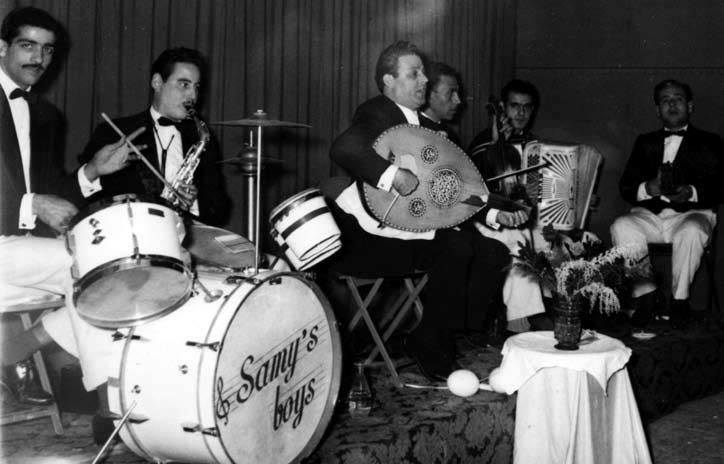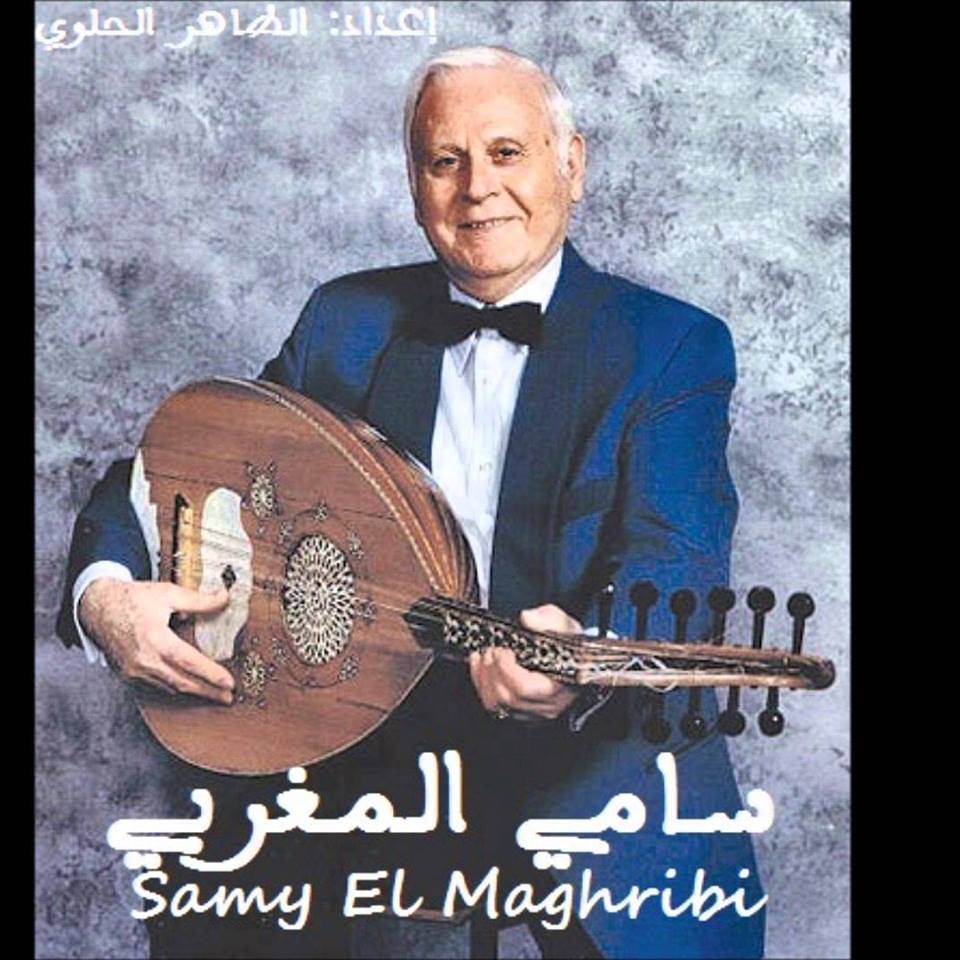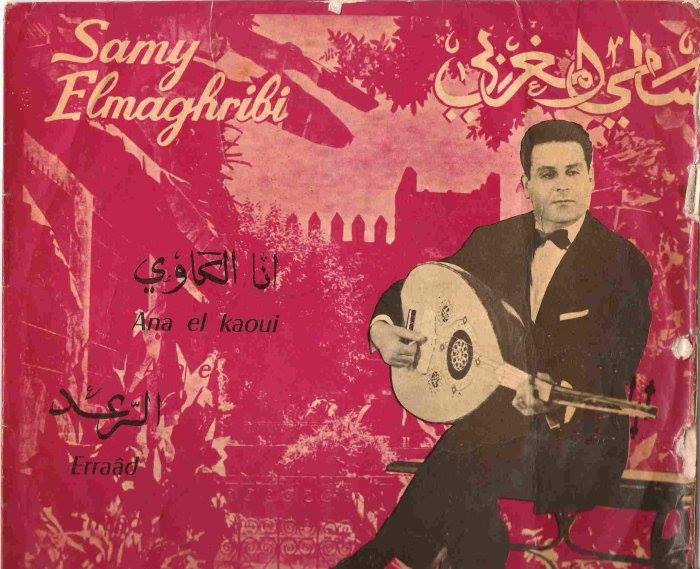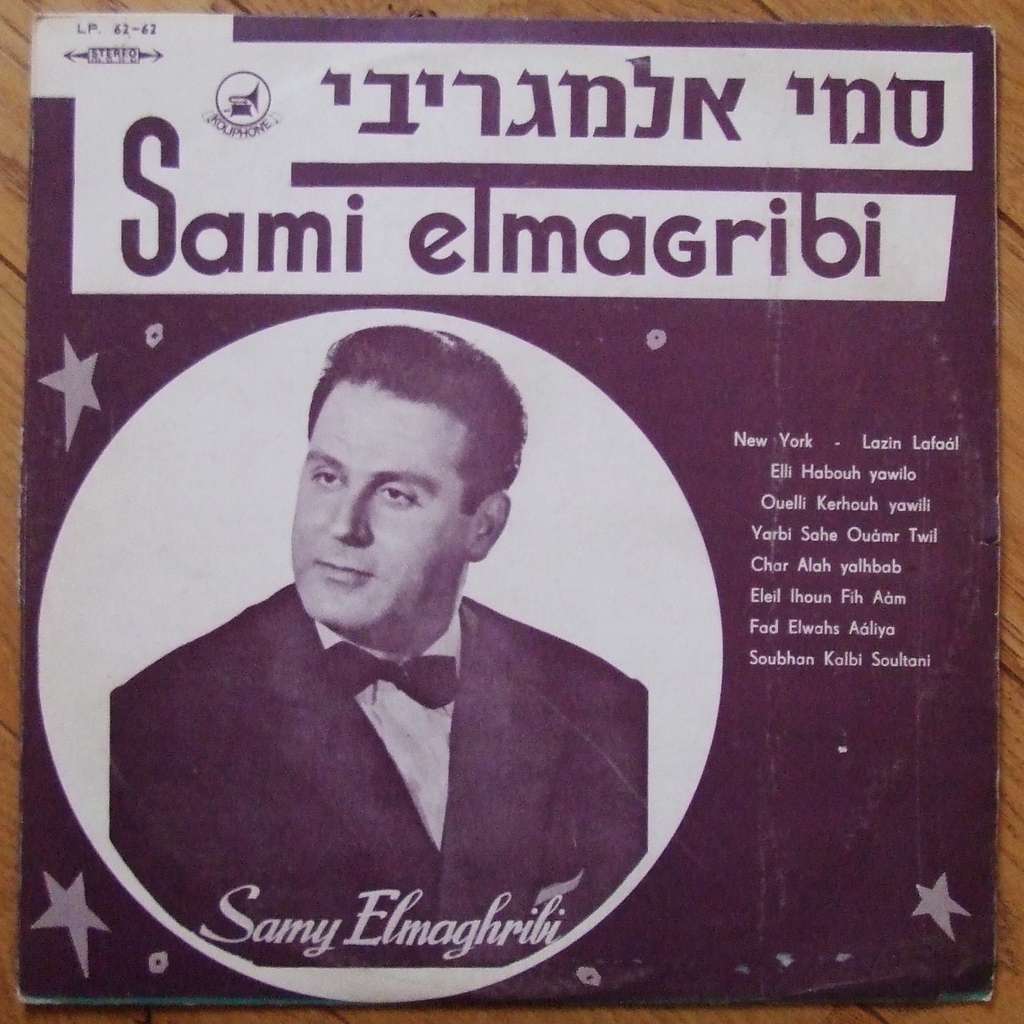




Samy Elmaghribi was a beloved 1950s radio star in Morocco and Algeria, cantor in Montreal, and music director in Israel.
Salomon Amzallag was known in the Montreal Jewish community both as a long-standing first cantor of the Spanish & Portuguese Synagogue (1967-1984), and as Samy Elmaghribi, a world-renowned singer, songwriter and composer of Arab-Andalusian music.
Salomon Amzallag was born in Safi (Morocco), on April 19, 1922. From early childhood, he cultivated his unique talent for music and song, starting at the synagogue with his father, and later learning the Andalusian repertoire with great masters in Rabat (Morocco). He soon became a star performer and composer of traditional and popular music with a fan following throughout North Africa and beyond, and founded his own recording company under the label “Samyphone.” Samy Elmaghribi was also a favourite singer of the late kings of Morocco Mohammed V and Hassan II. He composed a number of Moroccan patriotic songs and hailed the return from exile of King Mohammed V in 1955 with a special composition, “Alef hniya u hniya” (A thousand welcome greetings), that won public popularity.
Salomon Amzallag never renounced his initial love for Jewish liturgy. In addition to his own Sephardic ancient melodies and poems, he performed many other liturgical genres, including middle-eastern and Ashkenazi cantorial classics. He enjoyed a long and successful liturgical career, both at the Spanish & Portuguese Synagogue in Montreal, and as a guest cantor in various synagogues throughout the world. He performed in a number of cantorial concerts in Montreal, and taught Sephardic liturgy, namely at Yeshiva University in New York. Some of his students, including his suc’cessor Cantor Yehuda Abittan, became leading cantors in Canada, France and Israel. Salomon Amzallag struck the right balance between the sacred and the secular facets of his career, and even wrote a song about his response to this apparent dilemma, “Enghenni Wenselli. As Samy Elmaghribi, he followed the paths of exile of his audiences and reached out to them from Paris to other cities in France, from New York to Los Angeles and Caracas (Venezuela), and from Israel back to Morocco. In Montreal, he gave three major concerts at the Maisonneuve theatre hall of Place des Arts (1978, 1984, 2005) and one at Théâtre Outremont (2003).
In Israel, he founded the Merkaz Piyyut Veshira, a centre for Sephardic music where he taught as pedagogical director from 1988 to 1994. During those years, he led a student choir in a series of concerts accompanied by an orchestra largely comprised of newly arrived Russian musicians, which later became the Israel Andalusian Orchestra. On April 27, 2005, Samy Elmaghribi took part in a tribute concert at the Tel Aviv Opera Hall, honouring his long career as a singer and teacher and celebrating the Israel Andalusian Orchestra’s 10th anniversary.
After retiring in Montreal in 1996, he continued to travel the world, and the most noteworthy performances of his later years include the Festival de Chant Gharnati in Rabat and Oujda (1999), and the Festival arabo-andalou (Arab-Andalusian Festival) held at UNESCO in Paris (2000). In 2006, he was the guest of the famous Moroccan TV music show Shada al alhan, a recording that went viral on YouTube.
Throughout his life, Salomon Amzallag crossed geographic, religious and cultural boundaries to extoll universal values through his art and create communion among his diverse audiences. He was acclaimed by both Jews and Muslims as one of the most talented representatives of the Arab-Andalusian musical tradition.
Salomon Amzallag passed away in Montreal on March 9, 2008. That same year, his dear wife Messody received the National Merit medal posthumously bestowed on Samy Elmaghribi by King Mohammed VI. Messody Cohen-Amzallag passed away in Ashdod on April 5, 2015. Samy and Messody’s children created the Samy Elmaghribi Foundation to perpetuate their teachings of respect for tradition, openness to others and generosity through the love of music.
Special thanks to Yolande Amzallag.

